Lagos Afrobeat Explosion: Delving into the city’s booming nightlife and music scene
By Edwin Fairbrother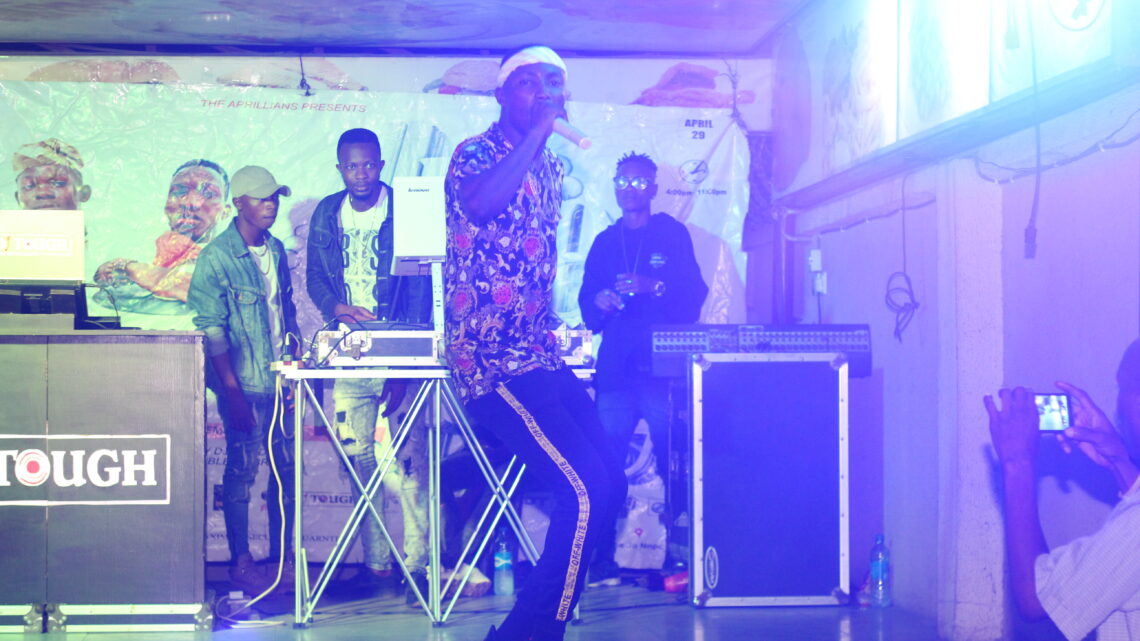
Scene Report: Lagos Afrobeat
Lagos, the most populous and rapidly growing city in all of Africa, doesn’t just have an economy that’s booming, but a thriving music culture that has produced new genres and some of the most notable artists in the world. SoundSight Mag explores West Africa’s flourishing music hub, speaking with some of the city’s up and coming afrobeat talent.
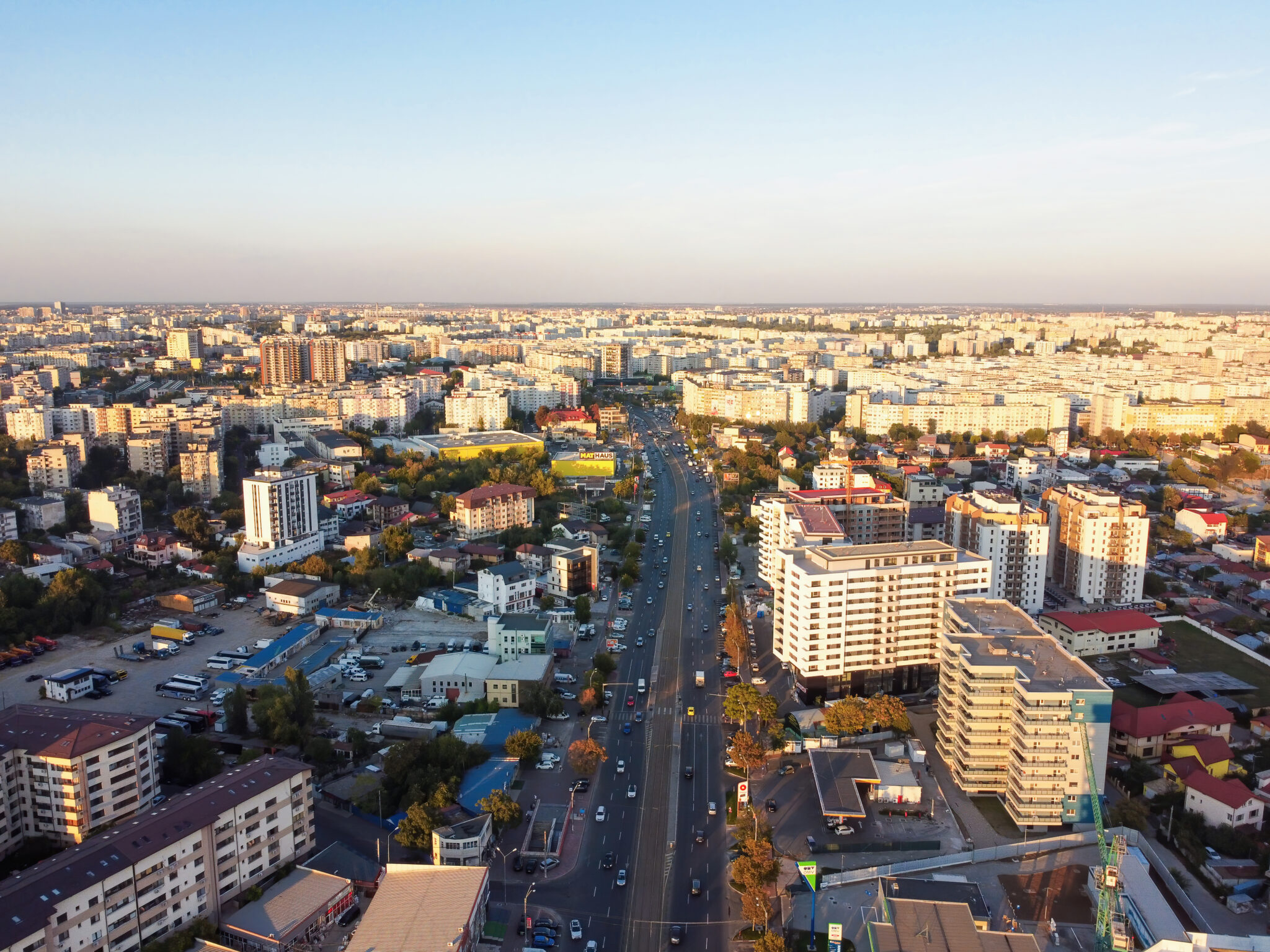
Even from a brief bit of research, it’s clear that Lagosians love music, and love to party. The city has had a reputation not only (unfortunately) for crime, but also for its nightlife and music events for some time. With a growing economy comes an increasing middle-class, and although the city might still have shanty towns and a lot of poverty going on, it’s enjoying more wealth than it has in its history – resulting in it being “the world’s second biggest consumer of champagne after Paris” in 2016, according to local photographer Andrew Esiebo via Red Bull Bulletin. And we know what’s also associated with champagne…parties.
Although legendary artists such as Fela Kuti may have laid the foundation for Afrobeat in this city many decades ago, afrobeat in its contemporary form hasn’t been around for very long. Before it was created in Lagos and exploded into an internationally acclaimed genre, other types of music were more popular in the city – being hip hop and reggae mostly. Contemporary afrobeat is the result of a fusion of both modern western and Caribbean popular music genres (hip hop and dancehall), with traditional West African rhythms.
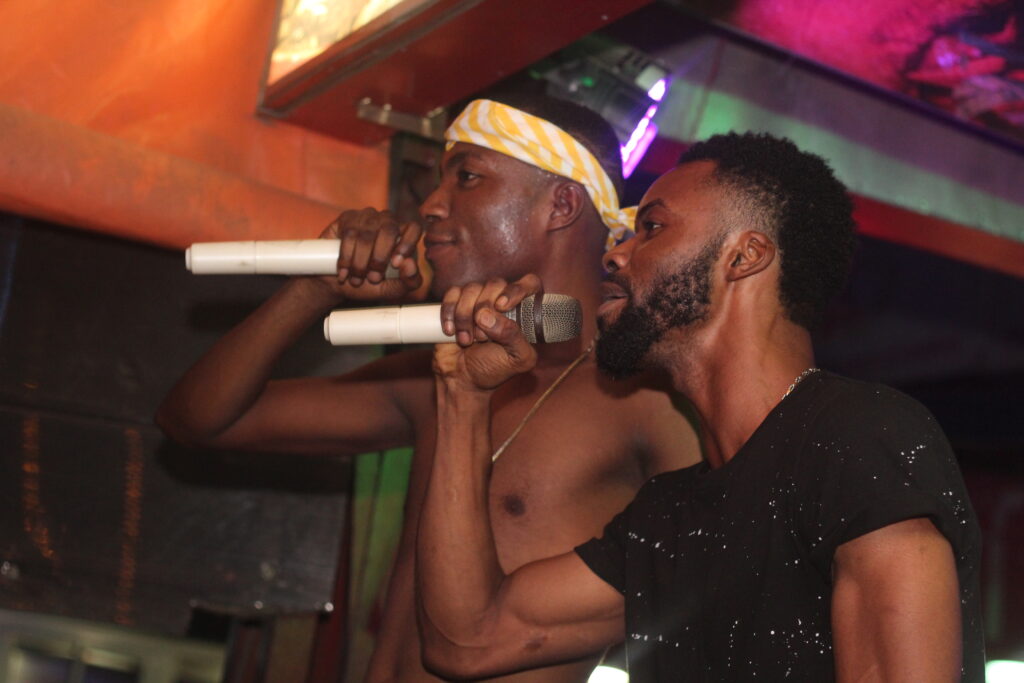
Now Lagos exports afrobeat as a modern popular music genre back out to the world, with many international artists now making the music, as well as huge American pop stars like Beyonce and Drake taking note and taking influence. Certainly one of the biggest afrobeat artists to come out of Nigeria is Burna Boy, who was actually born in Port Harcourt, but officially launched his career in Lagos after returning there from studying in the UK. Perhaps it’s no surprise that Burna Boy’s grandfather once managed Fela Kuti. It’s no coincidence that up and coming Lagos afrobeat artist Superlakon tells SS Mag that not only is Burna Boy one of his biggest influences, but he actually started making afrobeat after initially listening to Fela Kuti’s music. With a rich tapestry of musical history, Lagos now has role models and foundations that pave the way for the next generation of artists.
“I started making afrobeats from listening to Fela Kuti’s music, and Burna boy really inspired me alot, lyrically and energetically.” – Superlakon
Superlakon also states Kalakuta Museum – somewhat of a shrine to Fela Kuti – as a significant place in the city helping and inspiring him to make music. Local producer FX Magic started making afrobeat some years ago in the Ikotun neighbourhood, citing the Surulere area as a key hub in the city for afrobeat music.
“Surulere is a neighbourhood where afrobeat is a lifestyle. My family moved to the Ikotun area where I started making afrobeat as a music producer, and also most of the songs we grew up listening and dancing too back then were different genres of music that were fused together to create afrobeat, that made it easier for me to be able to make afrobeat.” – FX Magic
Both artists mention changing music technology as a major factor influencing Largos afrobeat’s evolution over the years. Magic credits music tech for breaking down language and genre barriers; and Superlakon credits the internet for breaking location constraints, also mentioning that the music being made by the new generation of afrobeat stars is “often in celebration of Lagos culture.”
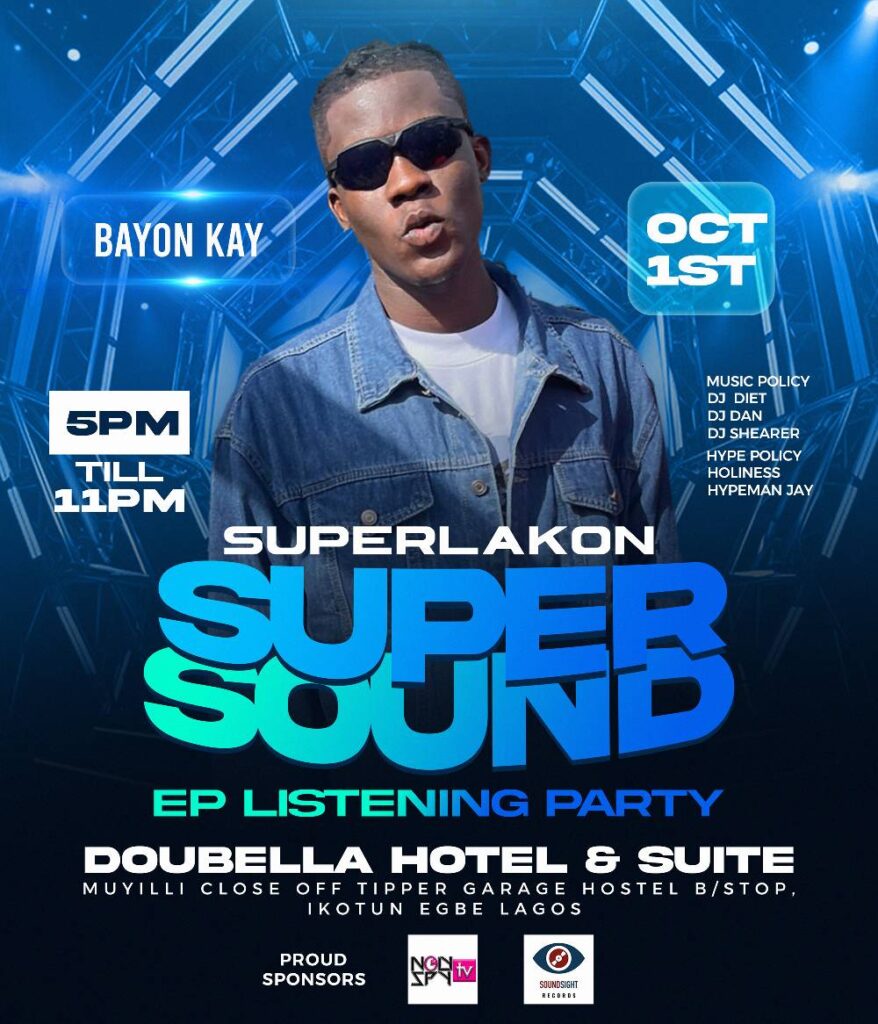
With afrobeat being regarded primarily as a dance music genre (merging aforementioned types of music), it makes absolute sense that Lagos has a thriving DJ culture, and world renowned nightlife with an ever growing club scene – you’re certainly not short for places to party in this noisy, bustling metropolis. With luxury nightclubs like Club Quilox located on the city’s wealthy Victoria Island, to the New Afrika Shrine – which is an open air entertainment centre dedicated to the late Fela Kuti, acting as a nightclub version of the Kalakuta Museum mentioned by Superlakon. Music is such an intrinsic part of this city’s culture, Superlakon and FX Magic mention regular city events such as The Lagos Carnival in January and Lagos Freedom Fest in October as major gatherings – with Superlakon holding a Listening Party for his latest EP during this year’s Freedom Fest. Of course Wizkid’s major local concert ‘Made in Lagos’ is brought up as a key event in the afrobeat calendar, as well as Olamide concerts and The Headies Awards – a local award show established by Hip Hop World Magazine recognising outstanding achievements in Nigerian music; formerly Hip Hop World Awards, but now with afrobeat taking centre stage. There really is so much going on in this city in terms of current events, scenes and musical history, it’s no wonder Lagos has influenced the rest of Africa, if not the world, with its cultural heritage and exploding music communities.
”This has broadened my heart and helped me to expand and improve on my creativity to meet the demand, and satisfy the people’s musical needs. It has also helped me to improve in creating and producing universally acceptable music.” – FX Magic
With FX Magic’s above summary of his experience producing music for artists in Lagos, he runs down some that he’s worked with. Some of them, as is with Superlakon’s collaboration list, are a host of internationally based artists, illustrating just how far Lagos’s music scene reaches around the world. Magic has worked with local artists Ayo Jazzy, Leo Wonder, and of course Superlakon, on top of a plethora of foreign artists such as UK based Vera Tunes, and US based afrobeat artists NIYRA and Dende, and Ghanaian born Bonze Beats now based in Lagos. Superlakon has collaborated with Nigerian internationally acclaimed artists such as ADX ARTQUAKE now based in Seattle, and Ricky Lace now based in the UK, as well as Sianda from Tanzania and Notorious Beats from the US. Music is one of Lagos’s biggest exports to the world, greatly influencing artists and music scenes (especially in the UK). So, it’s no surprise that Lagos has rocketed Nigerian music industry revenues way past $4 million last year, expected to surpass $7 million by 2027, resulting in Nigeria named as the fastest growing entertainment and media market in the world. Both artists believe afrobeat’s influence on music globally has also helped export aspects of Nigerian culture too.
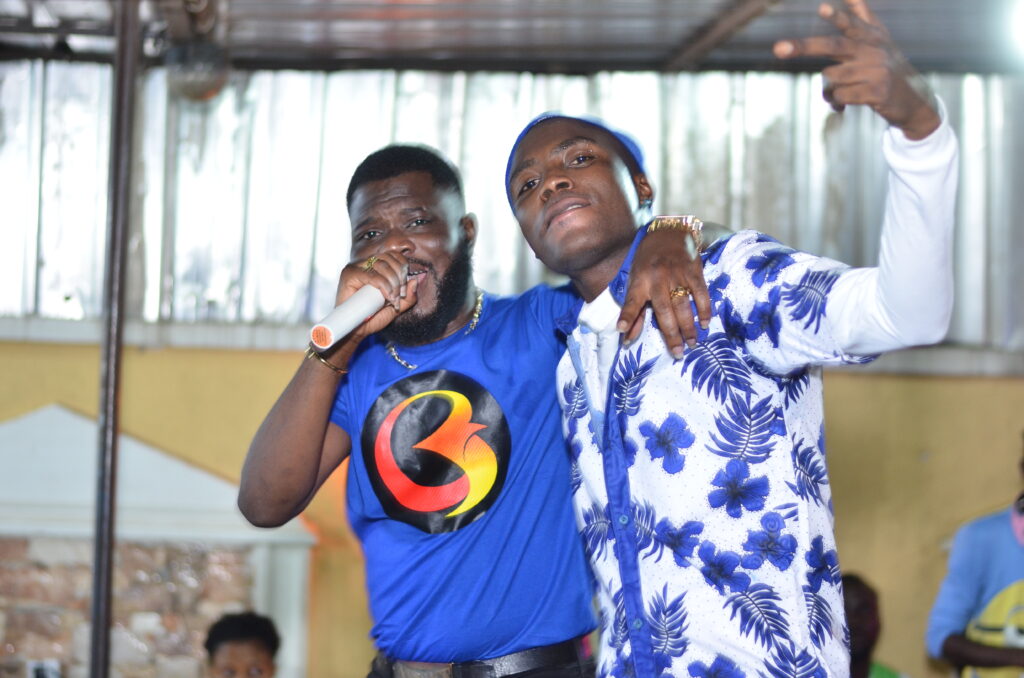
“Beyond just influencing music, we are also seeing the impact that genres like afrobeats are having in exporting other aspects of our culture, from fashion to food, and even language.” – Superlakon

FX Magic attributes Lagos’s diverse cultural and ethnic landscape as both a reason for it being such a hub, but also what makes it somewhat of a challenging place to make it as an afrobeat musician.
“The city’s music scene has been experimental, inspiring and a bit challenging, because Lagos is a place where you find every tribe in Nigeria, Africa and even the world” – FX Magic
Despite some claims that the afrobeat scene in Lagos is male dominated, it’s apparent that the city is now facilitating more and more female artists within the scene. DJ Nana is one of a growing number of female afrobeat artists and DJs finding success in the city. Following in her footsteps are creative professionals The Kan Àwa Collective, consisting of music producer Olayinka Owoseni and creative consultant Yvette Ogungbe; who according to Condè Nest Traveller on top of working on their own musical projects, during the day actually work tirelessly to support the local scene and push afrobeat out to the world.
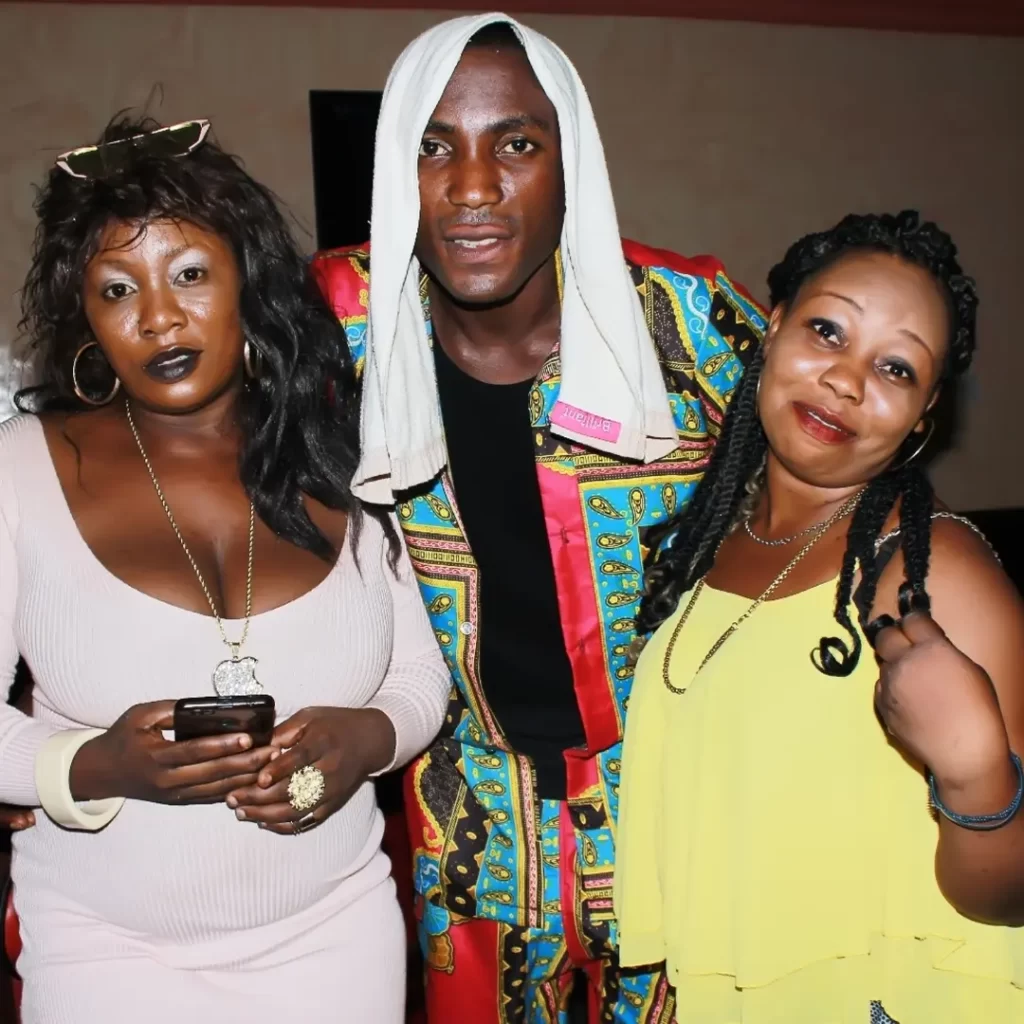
What’s perhaps the most obvious reason Lagos is such an international hub for music, and a big musical influence on Africa and the world, is that there are so many talented artists in this city supporting each other, and working relentlessly to build a thriving music culture that is renowned the world over.
FX Magic believes the future of the Lagos afrobeat scene to be much of the same, exporting more music around the world, generally improving Nigeria’s reputation globally, and providing more African Grammy nominees.
“Lagos afrobeat has helped to improve ties between African music makers and has made the African culture, language and fashion easily exportable. Also African afrobeat artists are now being given international awards like the Grammys and so on, which has brought honour and recognition to Nigeria and African music at large. It will continue to create ties with foreign musicians, leading to collaborations with the biggest pop music stars in the world, bringing further global exposure.” – FX Magic
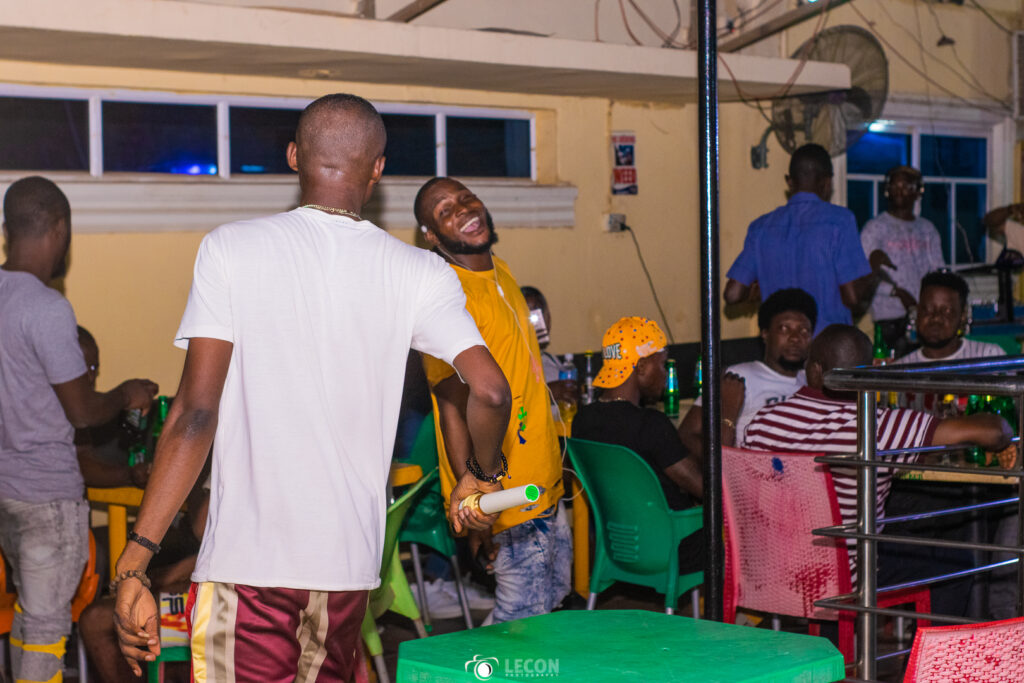
Superlakon’s prediction for the future of Lagos afrobeat was a bit more bold and concise, believing it will continue to take over the world.
“In the next 5 years afrobeat is going to be the greatest, most recognised genre in the world.” – Superlakon
Being so passionate about the genre himself, we wouldn’t expect any less of a confident statement than that from the rising pop-afrobeat star. If you would like to support the scene yourself, make sure you follow the socials below, and have a listen to Superlakon’s foot-tapping array of singles and EPs on the Spotify player too. You can also follow and listen to local radio station Naija FM (‘Naija’ being the Nigerian term for afrobeat), to stay up to date on all afrobeat news within the city and beyond!
2 thoughts on “Lagos Afrobeat Explosion: Delving into the city’s booming nightlife and music scene”
Comments are closed.




How can you not get up and dance? Loved this article. I now have a new Spotify list to keep me motivated (or distracted) while working.
We certainly get up and dance 🙂 Pleased to hear you liked the article, and that you have some new music to keep you motivated. Check out our very own playlist on our ABOUT page if you need some more motivation…or distraction 😀